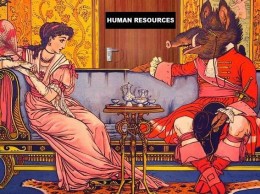Why Structured Job Interviews May Be Better Than Unstructured Ones

Organizational psychologists like Highhouse recommend that, if you’re going to bring candidates in for interviews, the interview should have a predetermined structure, and that the person should be judged in measurable ways on criteria related to the job. Structured interviews can offer useful information where unstructured ones just cloud the case, he says. By creating a fixed set of criteria, they can combat the unconscious bias that most people have towards hiring someone like them — who shares their hobbies, personality type, background, skin color, gender, or age — and keep the focus on actual performance. “If you’re hiring somebody to fold clothes, have them fold clothes. If you’re hiring someone to do consulting, have them do a consulting case,” says Dana. “The more structured the interview, the better the predictive potential is.”
In the Boston Glove, Sarah Laskow goes into the problems with the unstructured job interview — the one where you go in and answer open-ended questions — mainly because it’s more about whether someone seems likable and less about whether she can do the job, which a structured interview would be able to better show.
I’m on board with this — I feel like I don’t make the best impression during interviews and could probably show a little bit more charisma, but am definitely capable of taking on tasks and demonstrating what I can bring to the table in measurable ways.
Support The Billfold
The Billfold continues to exist thanks to support from our readers. Help us continue to do our work by making a monthly pledge on Patreon or a one-time-only contribution through PayPal.
Comments